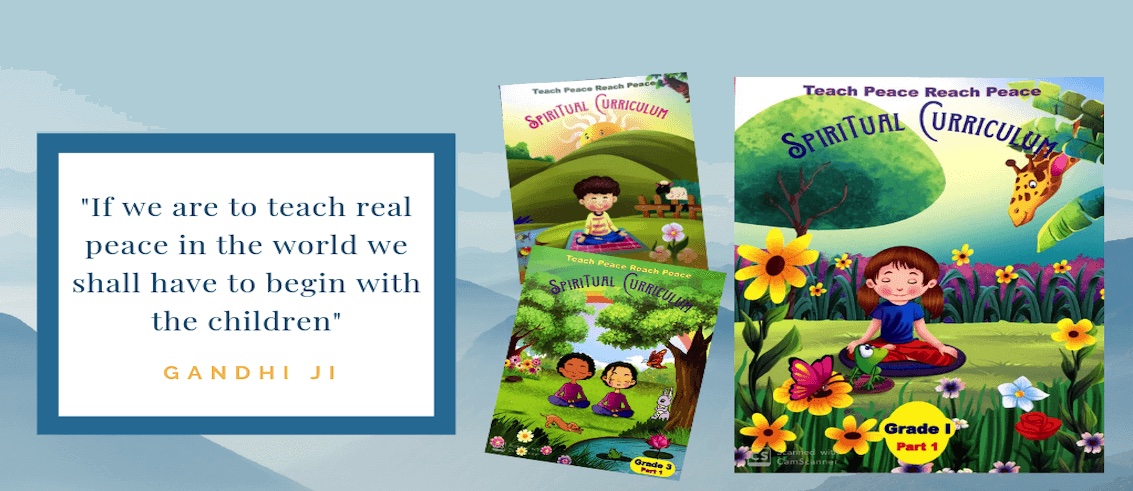
The rich curriculum programme offered by ‘Teach Peace - Reach Peace’ has been developed to establish a strong ethical and moral foundation for children. The course content is a fine amalgamation of ethical values and life skills.
The Teach Peace - Reach Peace curriculum focuses on 12 key building blocks, each of which covers lessons pertaining to the topic. While the framework of the building blocks remains unchanged from nursery (pre-K) through Grade 12, each block gains in depth and detail with each passing year, as lessons are added to build on the year before, to match the students’ increasing ability to comprehend and assimilate the information.
The Curriculum Books are a great tool in the hands of teachers, through which they transform the young budding minds into a peaceful and kinder generation of tomorrow.
Building Blocks of "Teach Peace - Reach Peace" Programme
- Ethical Values
- Getting Along with others
- Selfless service
- Creative problem solving
- Critical thinking skills
- Decision making
- Conflict Resolution
- Plant-based Diet
- Goal-Setting
- Time Management
- Respect For All
- Love For All

